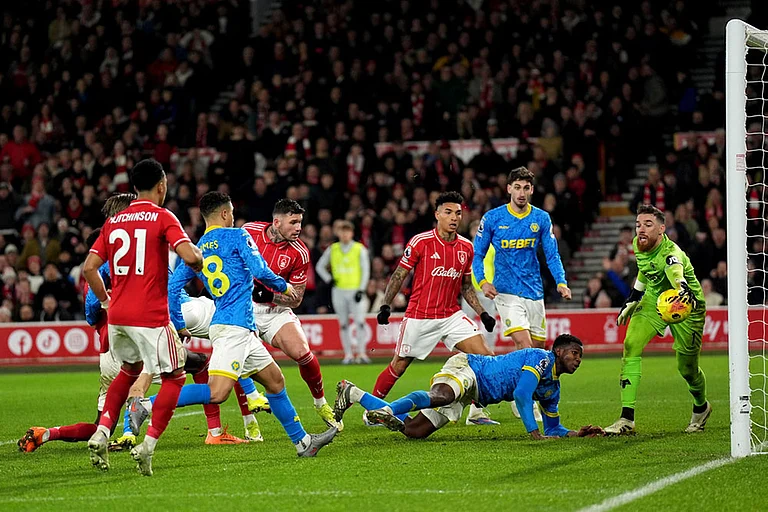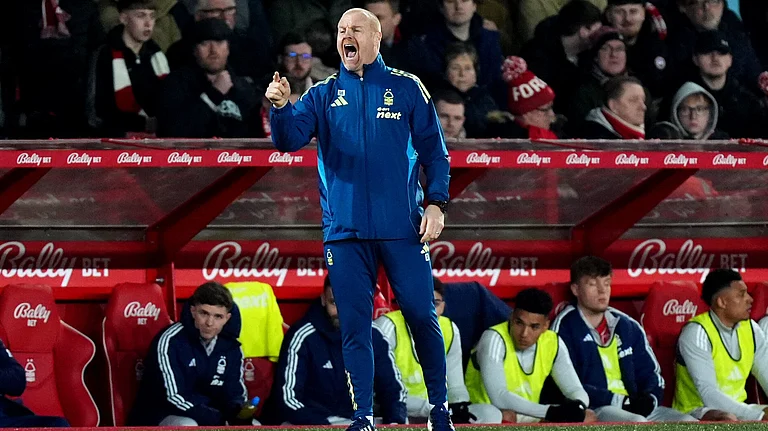For over a century, Indian films have portrayed transgender characters either as villains or have used them for comic relief. Such stereotypical portrayals fail to bring to the fore the complex lives of transgenders who have been living on the margins of society for thousands of years. Such character misrepresentation has been happening for too long, at least in the Indian film industry.
Though in the recent past an attempt has been made to portray the transgender community with utmost sensitivity in films and series, Sushmita Sen-starrer Taali has initiated a pertinent debate—Can gender be performed? While a few transgender-transexual activists and scholars are of the opinion that actors, by the very virtue of their jobs, are free to take up any roles, another section thinks it is a time-tested mechanism to deny deserved representation to transgender actors.
Some recent films have chosen to focus on the complexity of trans lives, but cis-gender actors were picked to play the roles of transgenders. While Thangam (2020), a part of the Sudha Kongara-directed anthology Paava Kadhiagal, was critically appreciated for showcasing the character of 27-year-old transgender Saathar, who is secretly in love with their childhood friend Saravanan, the role was played by cis-gender actor Kalidas Jayaram. Even Vijay Sethupati’s noteworthy acting in Tamil film Super Deluxe (2019) couldn’t evade the allegation of appropriating the role of a trans woman.

Globally, though films like The Danish Girl (2015) and Transamerica (2005) had been appreciated for their sensible representation of transgender characters, the lead roles played by cis-gender actors evoked controversies. The life of transgender artist Einar Wegener, who underwent gender reassignment surgeries in the 1930s to become Lili Elbe and was the central subject of the paintings of her wife and renowned Danish artist Gerda Wegener, was portrayed brilliantly in The Danish Girl.
Wegener’s canvas where she explored gender as performance was the only space for Elbe to come out as what she wanted to be—far beyond the limits of social imagination and unabated vilification. Even after such detailed and sensible representation, the role of Elbe played by Eddie Redmayne—a cis-gender man—attracted flak from different quarters. Trans writer Carol Grant described the choice to cast Redmayne as “regressive, reductive, and contributes to harmful stereotypes”. Later, Redmayne said though his intention was honest, it was a ‘mistake’ to take up the role.
Despite its complex and nuanced narrative, Felicity Huffman-starrer Transamerica—the story of a trans person who during a journey finds her son whom she fathered when she was a man—had to face a backlash. The presence of other trans actors in primary roles and writer and activist Andrea James as the script consultant saved it from more criticism.
However, there are films that have offered lead roles to trans actors. Rashaad Ernesto Green-directed Gun Hill Road (2011) was not a blockbuster, but the character played by trans actor Harmony Santana added complexities to the performance. It is the story of a teenager who is exploring her trans-self and her father, who has just got out of jail. The way he negotiates with the identity of his child shows the struggle of a father. Another father-child film, Cowboys (2020), also offered the character of Joe (transgender teenager) to young trans actor Sasha Knight who brings her experiences on screen.
While the representation of transgenders around the world offers some hope, in India, the dominance of cis-gender actors makes it difficult for trans people to get their representative roles.

Popular theatre activist and artist A Revathi, 57, says: “I think anybody can play any role. We are artists. But my question is why are we not given the roles of women? We are women as well.” She thinks the major reason behind excluding trans actors from main roles stems from the market compulsions of producers and directors. “They make films to earn money. If they give lead roles to us, nobody will watch these films and thus they always cast big stars. But they can at least give us primary roles,” says the actress, popularly known as Revathi Amma.
However, for transgender activist and scholar Dr Aqsa Shaikh, the debate is not about the ability of binary actors, rather it is a matter of justice. “Shouldn’t trans actors be preferred for such roles? You shouldn’t infringe upon someone else’s rights. Cis-gender can definitely play transgender roles to great efficiency, but the fact is trans actors barely get a chance to play other roles,” Shaikh says.
Though the debates are dotted with progressive calls for fair participation of transgenders, Revathi Amma feels most of it is a blatant display of hypocrisy. “When Kalidas Jayaram played the role of the transgender in Thangam, he took training under a transgender person. After the success of the film, he lamented the lack of participation from the community. I was really upset. Why are you people not giving us work? Aren’t we good actors?” asks the actor whose 2008 debut film Thenavattu was critically acclaimed.
The logic of the market is one of the major reasons behind the lack of transgender representation, feel scholars. “There is a tendency to take refuge under stardom, a certain well-known actress, so that they don’t have to find someone from the transgender community,” says film scholar Sayandeb Chowdhury.
He feels that actors can and should play any role they are assigned. “Actors play different characters. I see no reason why Sushmita Sen should be blamed for playing a transgender. The roles of gangsters, for instance, are essayed by actors and not gangsters. Similarly, the role of someone from the Dalit community need not necessarily be played by a Dalit,” he says.
The debate gets more complex when it comes to the conflation of transgender and transsexual identities. Bollywood actress of Ghoomar-fame (2023) Ivanka Das questions the lack of understanding of the film directors regarding gender and sexuality. “Transgenders are those who have gender dysphoria and transexuals are those who have both gender and body dysphoria. If you are taking transexual women to play transgender roles, that is not going to work,” says Das, who was given the role of Nargis in Taali, but she had to quit due to internal politics. “They had forcefully imposed the male voice on Nargis. It was not sounding good at all. One has to understand that transsexual women are women and should be treated like that,” she adds.
She feels that while method actors can play any role, candid actors like her need flexibility. “If I am being asked to play the role of a woman, I would be comfortable. In Ghoomar, my trans identity is revealed through the script, not with the imposition of any physical feature,” she notes.
One can combat societal stereotypes with the help of good scripts, feel experts. “We can have trans scriptwriters, directors and actors to represent themselves. Trans people can also play cis-gender roles. In Made in Heaven 2, the role of Trinetra has been appreciated by everyone. It is high time trans people start telling their stories,” says Shaikh. It is the collective responsibility of the director, scriptwriter, actors and all other stakeholders to build up a transgender character in a sensible manner, thinks Chowdhury. “It is more about a sensible response than restraining cis-gender actors from taking up transgender roles,” he adds. Films like Sheer Quorma (2021), written by a non-binary person Faraz Arif Ansari or Tanuja Chandra’s A Monsoon Date (2019) are steps in the right direction, Shaikh notes.
But it’s not enough. For years, activists like Revathi Amma have been asking for representation on the censor board to put a curb on insensitive portrayals. “We took to the streets, submitted several reports. But nothing worked out,” laments the veteran actor. Judith Butler, in her book Gender Trouble looks into gender as a performative act. But does the gendered act precede one’s gender identity on the silver screen? Perhaps, the complexity lies in justice, not in performance.
(This appeared in the print as 'Gender Trouble')



























